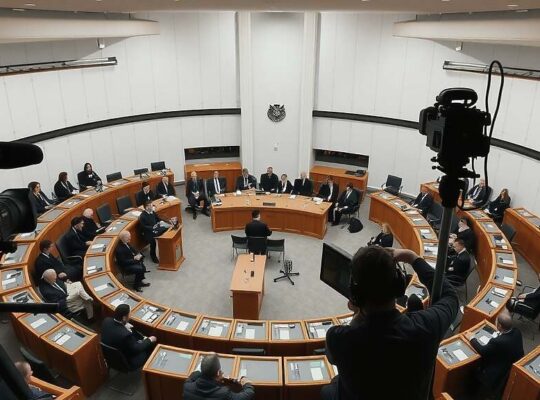Discussions are underway to implement stricter criteria for access to social welfare benefits for individuals migrating from countries like Romania and Bulgaria. According to Alexander Hoffmann, leader of the CSU’s state group, these discussions involve the Social Democratic Party (SPD) and aim to curb perceived misuse of the social security system.
Hoffmann, in statements to Bavarian media outlets, acknowledged a willingness within the SPD to address the issue of potential abuse. He highlighted concerns regarding “mafia-like structures” connected to welfare payments and emphasized the need to more effectively combat them. He referenced European Court of Justice rulings regarding freedom of movement, noting that while minimal working hours are permitted, the possibility of defining additional criteria to raise the threshold for eligibility remains open. He suggested that a shift in societal realities might also necessitate a re-evaluation of existing legal precedents.
Beyond stricter eligibility criteria, Hoffmann also advocated for more rigorous checks verifying the origin of applicants. He pointed to increasing instances of individuals presenting newly issued Ukrainian passports, despite lacking proficiency in the Ukrainian language. He clarified that possessing a Ukrainian passport should not automatically qualify individuals for welfare benefits and stressed the need for thorough origin verification processes. The impending legal shift, moving Ukrainian citizens from the welfare benefit system to asylum seeker support, is expected to enhance clarity in this respect.
The planned change regarding Ukrainian citizens-a retroactive application to April 1st-has prompted consideration of potential repayments of previously disbursed funds. Hoffmann indicated that the possibility of full or partial reimbursement will require careful evaluation.
These measures are envisioned as part of a broader socio-political package aimed at optimizing the efficiency of the social state. Hoffmann suggested that other nations achieve comparable social standards with substantially fewer resources, indicating a desire to maximize the impact of allocated funds. He expressed understanding for Labour Minister Bärbel Bas’s position, acknowledging the complexity of the reforms and anticipating that comprehensive changes, including welfare reform, will be initiated in the autumn.












